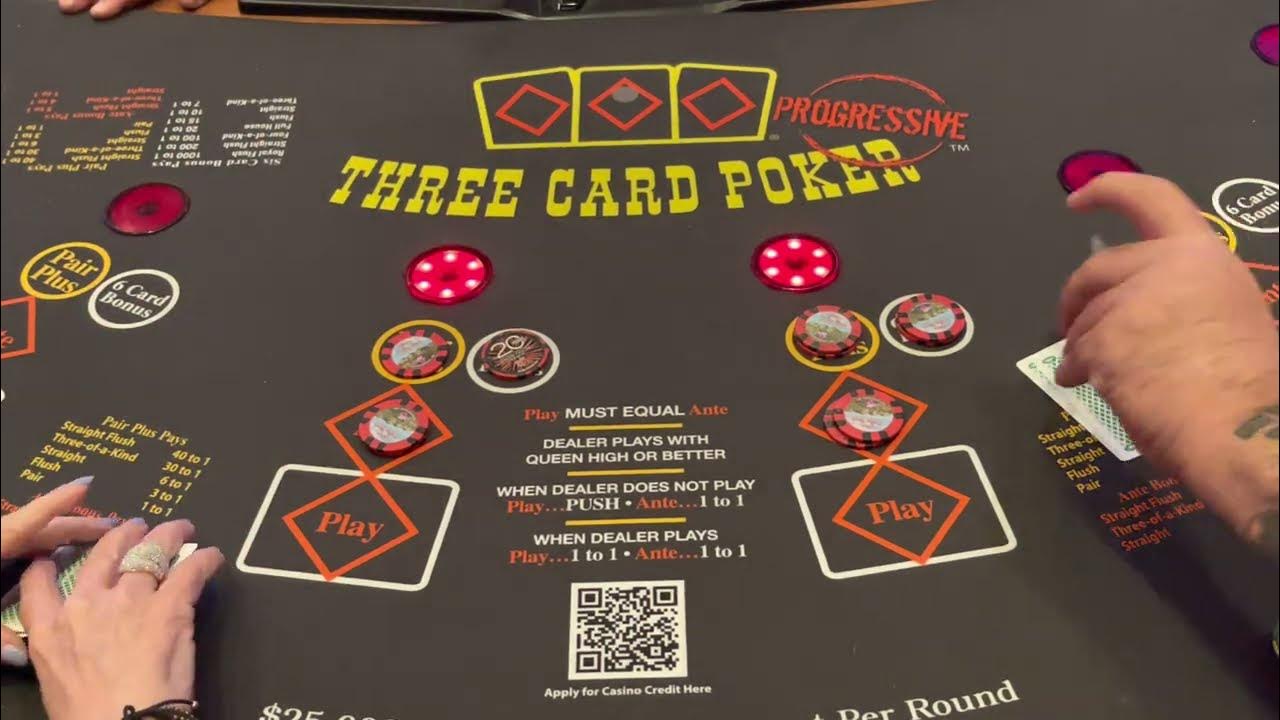3 Card Poker is a table game that has gained significant traction in both brick-and-mortar and online casinos. A relative newcomer compared to poker variants like Texas Hold'em or Omaha, 3 Card Poker offers an exciting twist, simpler rules, and the opportunity for big payouts. One of the most pivotal aspects of this game is the Ante/Play betting structure, which forms the backbone of the game's strategy. In this article, we'll delve deep into the importance of the Ante/Play betting, various strategies, and nuances that you need to be aware of.
What is 3 Card Poker?
For the uninitiated, 3 Card Poker is a poker variant where each player and the dealer are dealt three cards. Players have two primary ways to play: "Ante/Play" and "Pair Plus." In Ante/Play, players bet against the dealer's hand, aiming to have a higher-ranking hand. The "Pair Plus" bet, on the other hand, is a wager on whether the player will get a pair or better. For the purposes of this article, we will focus exclusively on the Ante/Play aspect of the game.
Basics of Ante/Play Betting
In 3 Card Poker, the Ante/Play betting sequence begins with an "Ante" bet. After viewing their cards, players can either fold, forfeiting their Ante bet, or choose to "Play" by placing an additional wager equal to the original Ante bet. The dealer's hand is then revealed, and payouts are made according to a paytable.
Importance of Ante/Play Strategy
The Ante/Play aspect of 3 Card Poker is where much of the game's strategic depth lies. Since you're playing against the dealer and aiming for a higher-ranking hand, your decisions on whether to fold or play are critical. Making the correct decision not only preserves your bankroll but also increases your chances of winning.
The "Q-6-4" Strategy
One of the most well-known basic strategies for Ante/Play betting is the "Q-6-4" strategy. This approach recommends that players should make the "Play" bet if they have a hand that is Queen-6-4 or better. Any hand lower than this is generally considered weak, and it's advisable to fold. The logic behind this strategy is rooted in mathematical calculations aimed at minimizing the house edge.
Dealer Qualification and Its Impact
For your "Play" bet to pay out, the dealer's hand must "qualify" by having at least a Queen-high. If the dealer doesn't qualify, your Play bet is returned as a push, and your Ante bet is paid 1:1. Therefore, your decision-making should also consider the likelihood of the dealer's qualification. For example, if you have a weak hand but suspect that the dealer may not qualify, it could be worth making the Play bet.
The Role of Card Combinations
Understanding card combinations and hand rankings in 3 Card Poker can give you an edge. Since there are fewer cards involved, the hand rankings are simpler than traditional poker but no less important. Straights are rarer than flushes, so they outrank them. Knowing the frequency of each type of hand can help you make more informed decisions.
The Bet Sizing Quandary
3 Card Poker doesn't allow for variable bet sizes in the Ante/Play structure. Your Play bet has to be equal to your Ante bet. This fixed bet size means you don't have the flexibility to increase your bet when you have a strong hand, making the initial Ante bet all the more crucial.
Bankroll Management
As with any casino game, effective bankroll management is key to long-term success in 3 Card Poker. The Ante/Play bet, being the central aspect of the game, should align with your overall bankroll strategy. Knowing when to up the ante or when to play conservatively can preserve your bankroll and extend your playing time.
Psychological Elements
The Ante/Play betting isn't just about the cards you're dealt; it's also a game of psychology. Being able to read the dealer or gauge the mood at the table can be as important as understanding the basic strategy. Although you're ultimately playing against the house, psychological factors like confidence and decision-making under pressure can significantly impact your game.
Ante Bonus and Its Effect on Strategy
Some 3 Card Poker games offer an Ante Bonus for strong hands regardless of the dealer's hand. This bonus payout for the Ante bet can alter your strategy slightly, as even if the dealer has a stronger hand, the Ante Bonus can offset your losses.
Practicing Your Strategy
While understanding the Ante/Play betting strategy is crucial, practice makes perfect. Many online casinos offer free 3 Card Poker games that allow you to test your skills and refine your strategy without risking real money.
Conclusion
The Ante/Play betting structure in 3 Card Poker encapsulates the strategic crux of the game. From basic strategies like the Q-6-4 rule to advanced tactics that consider dealer qualification and psychological elements, this aspect of the game offers both depth and excitement. With the right approach to Ante/Play betting, you can not only enhance your gaming experience but also significantly improve your odds of walking away a winner. So the next time you find yourself at a 3 Card Poker table, remember that your decisions during the Ante/Play stage can make or break your game.






